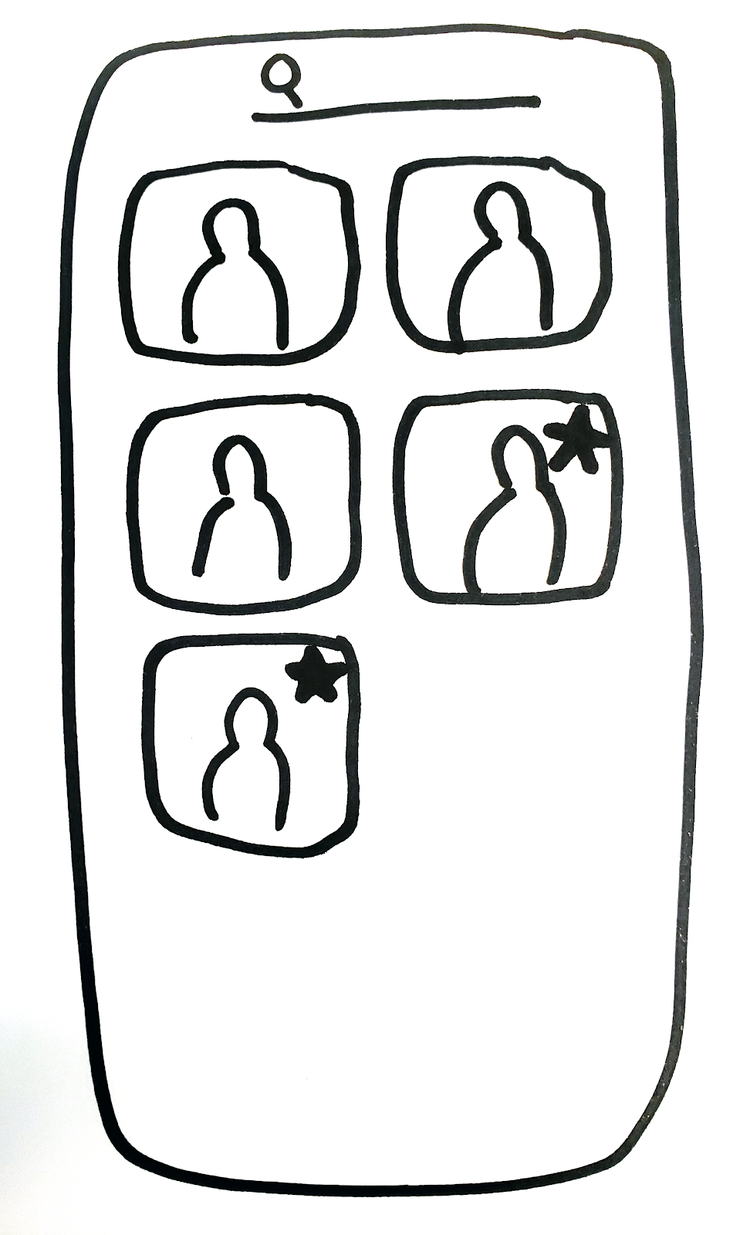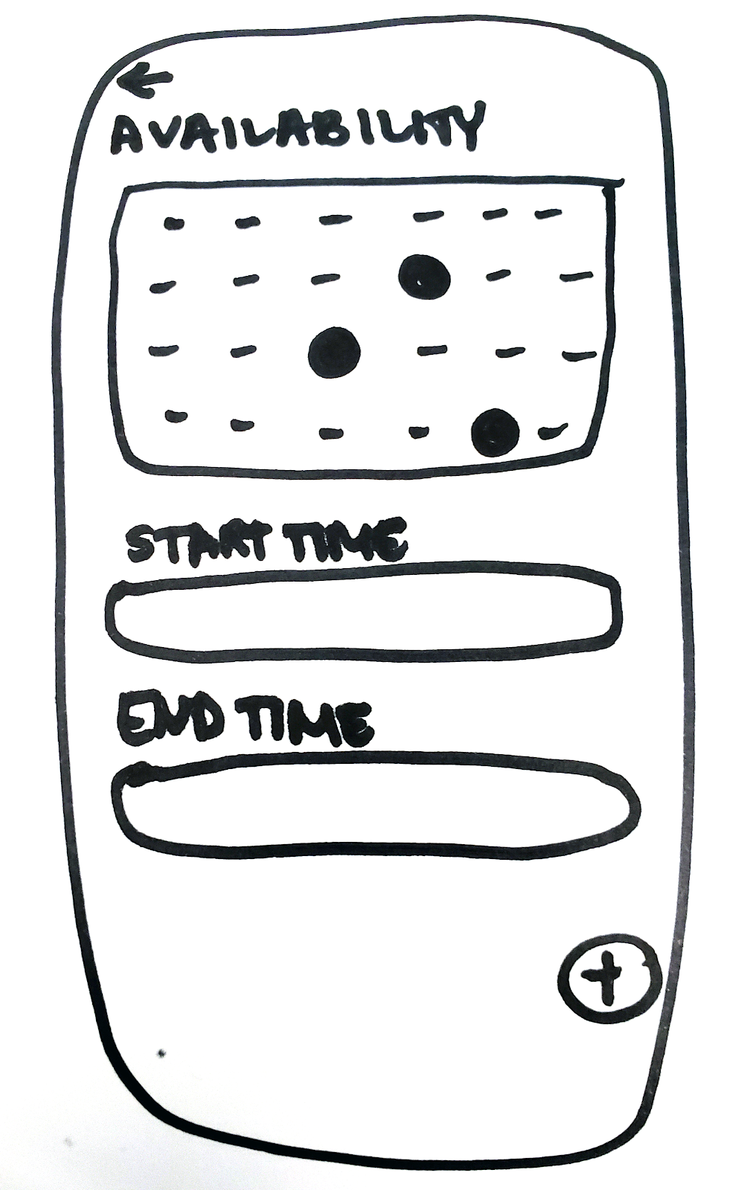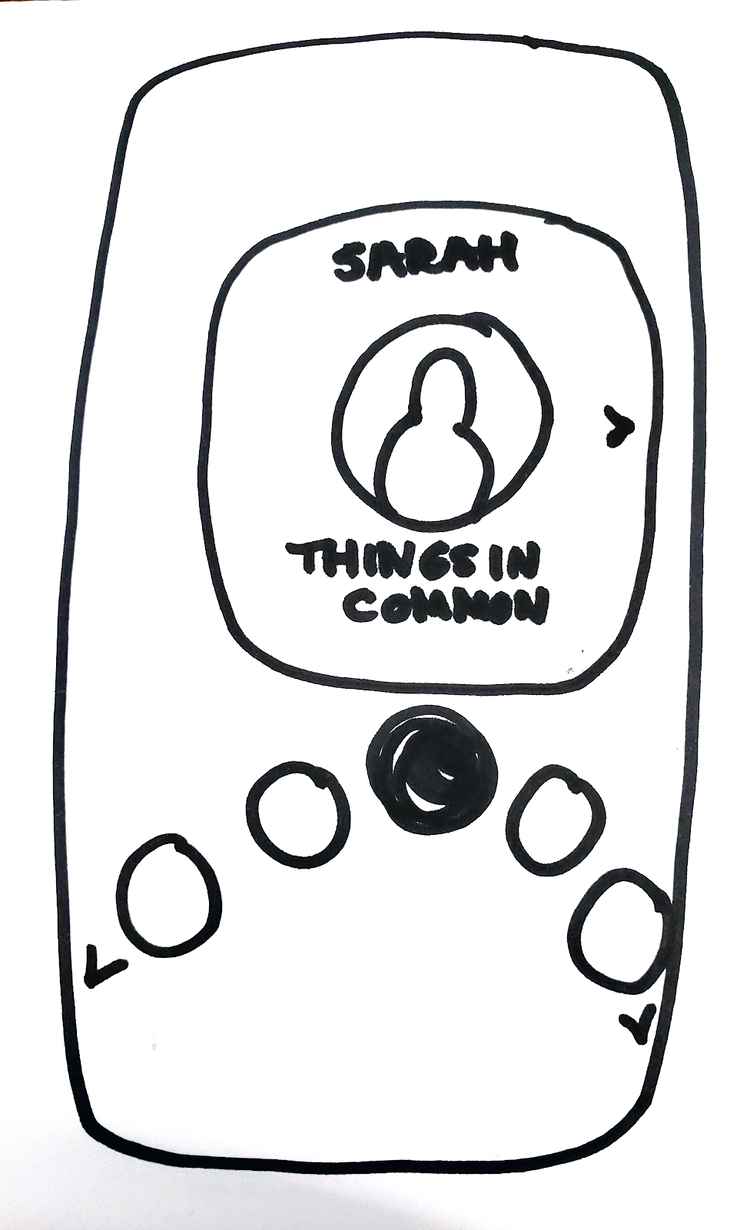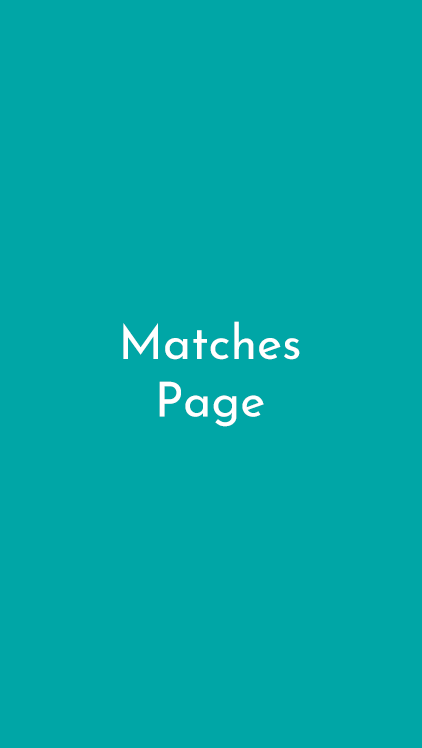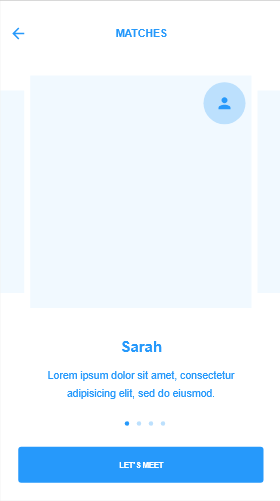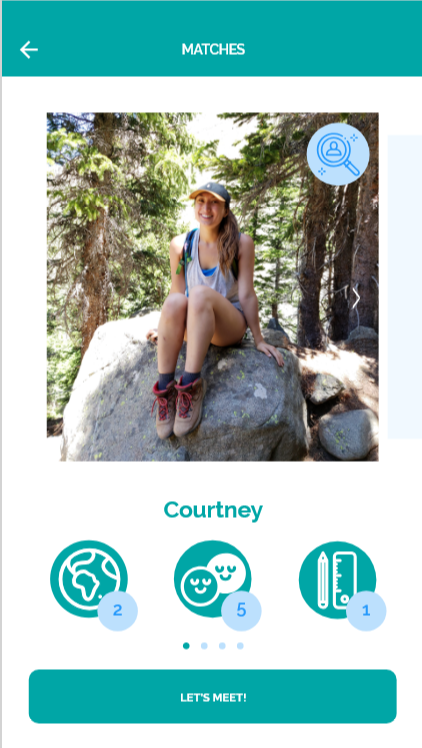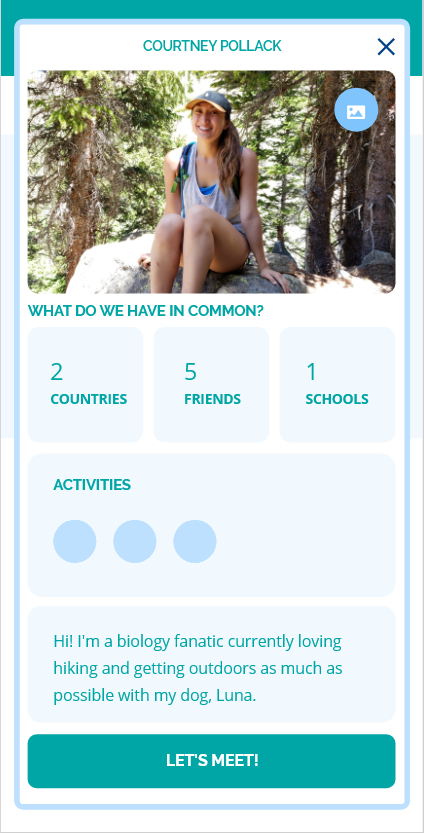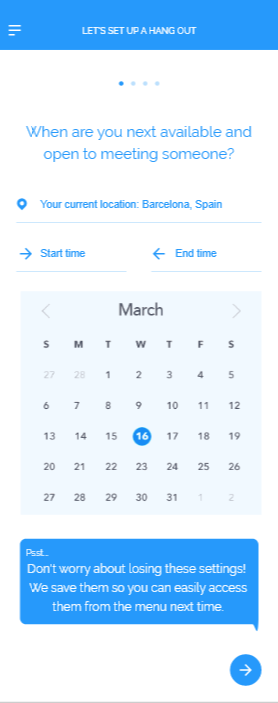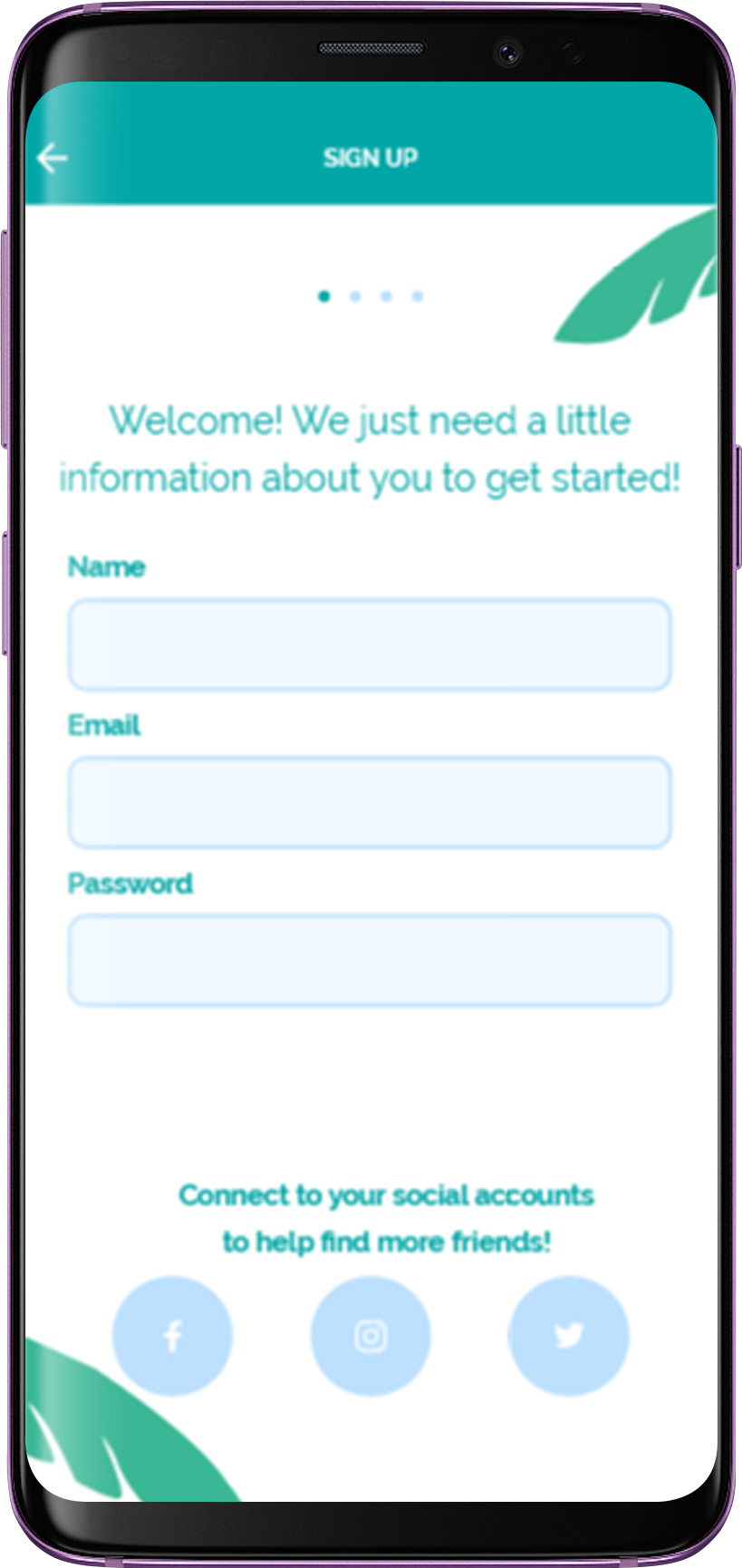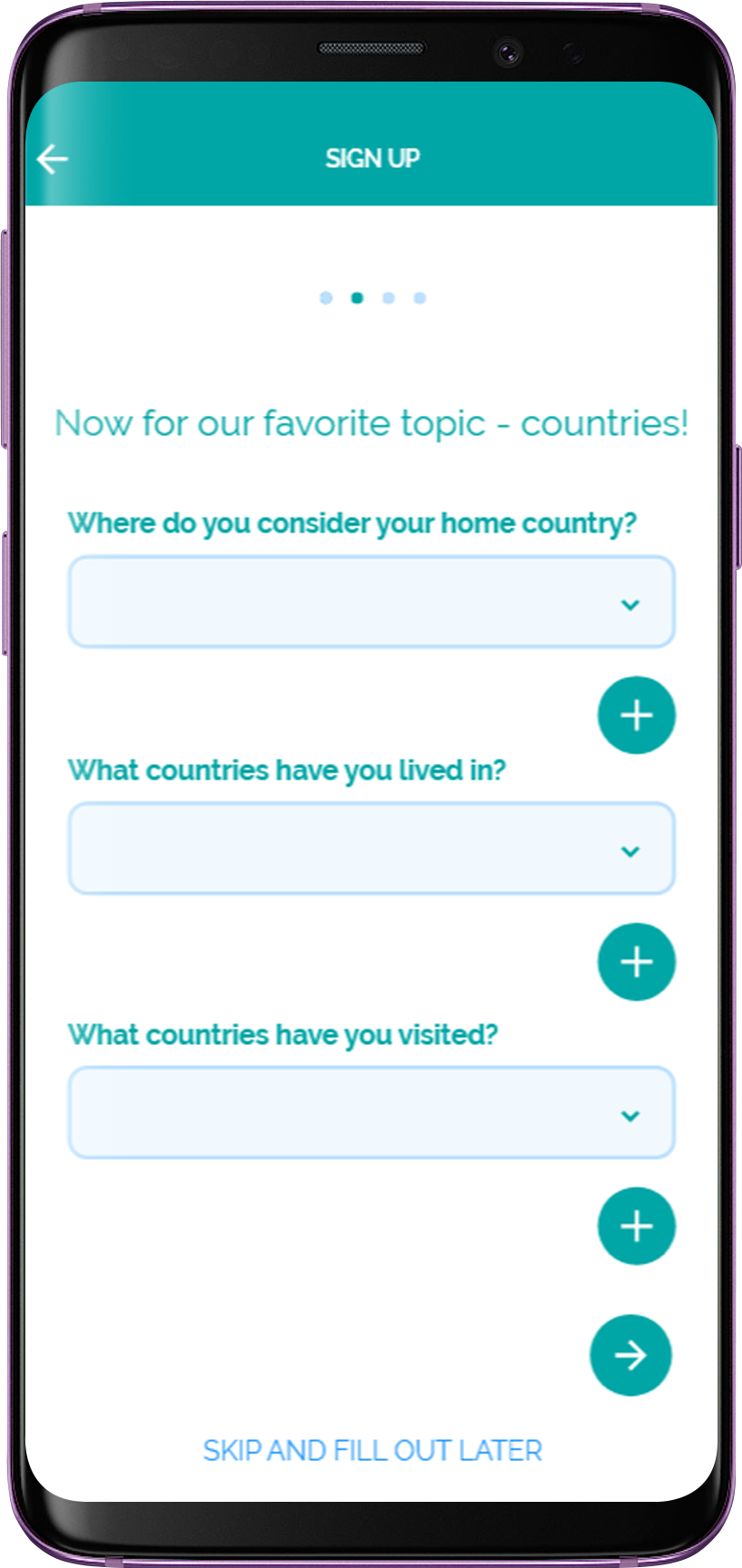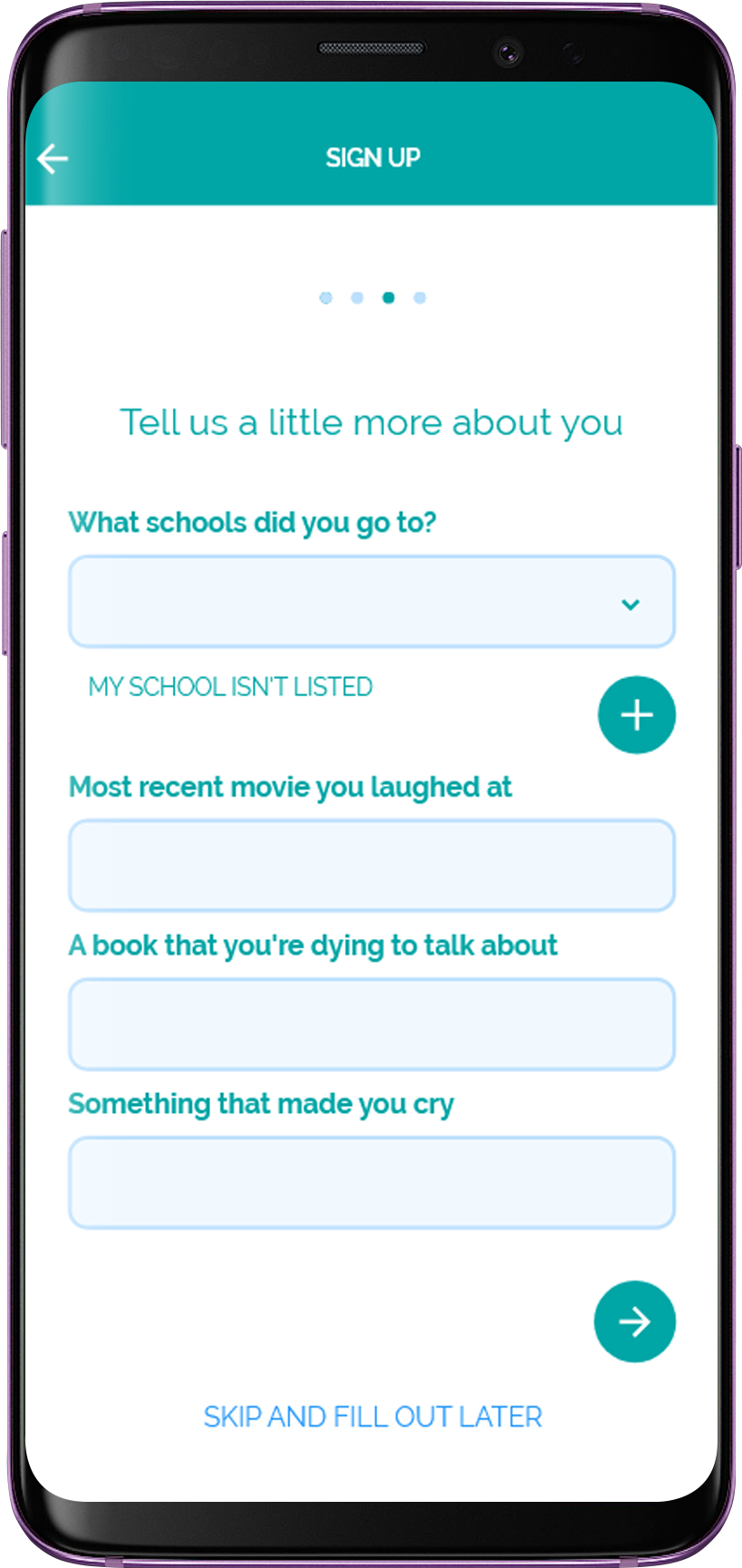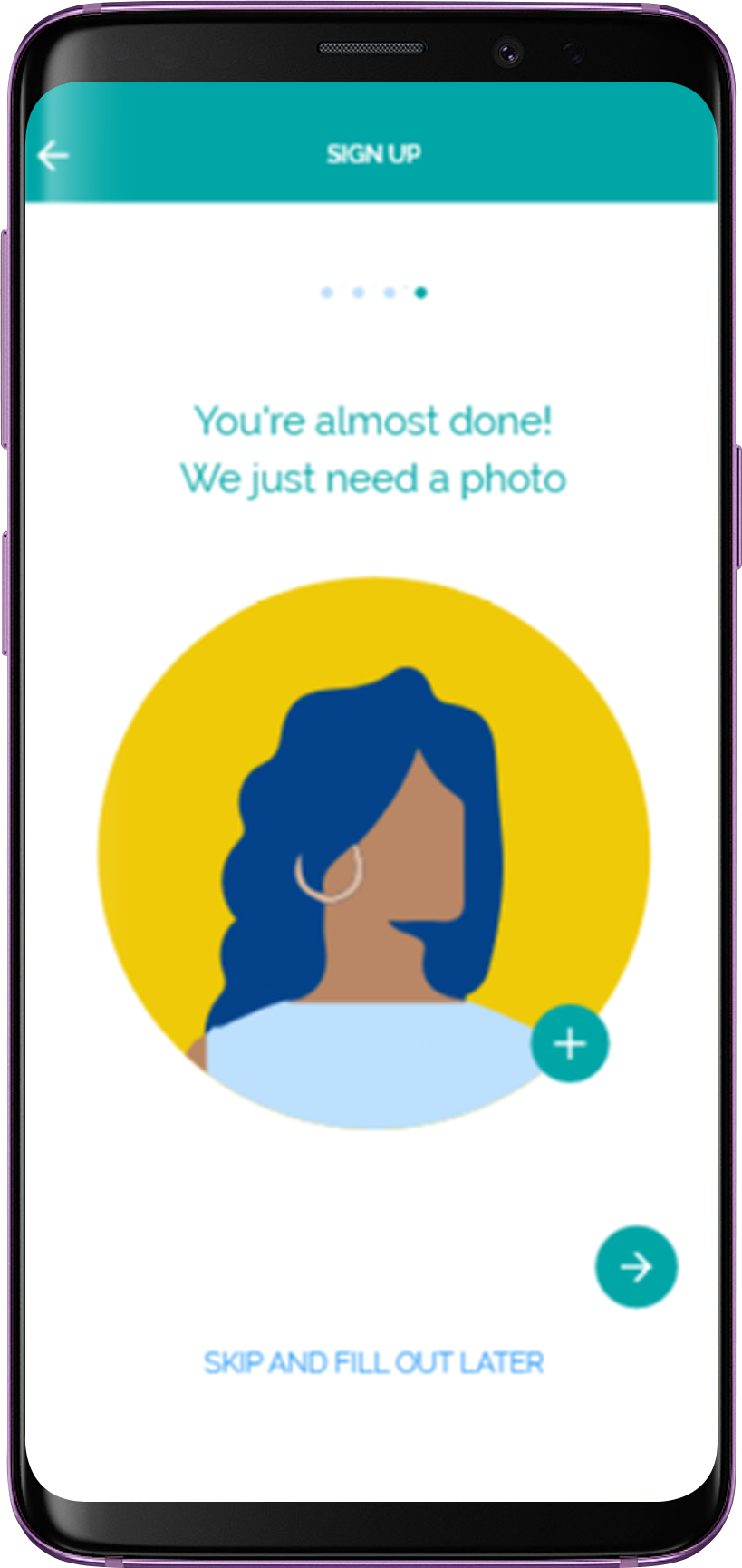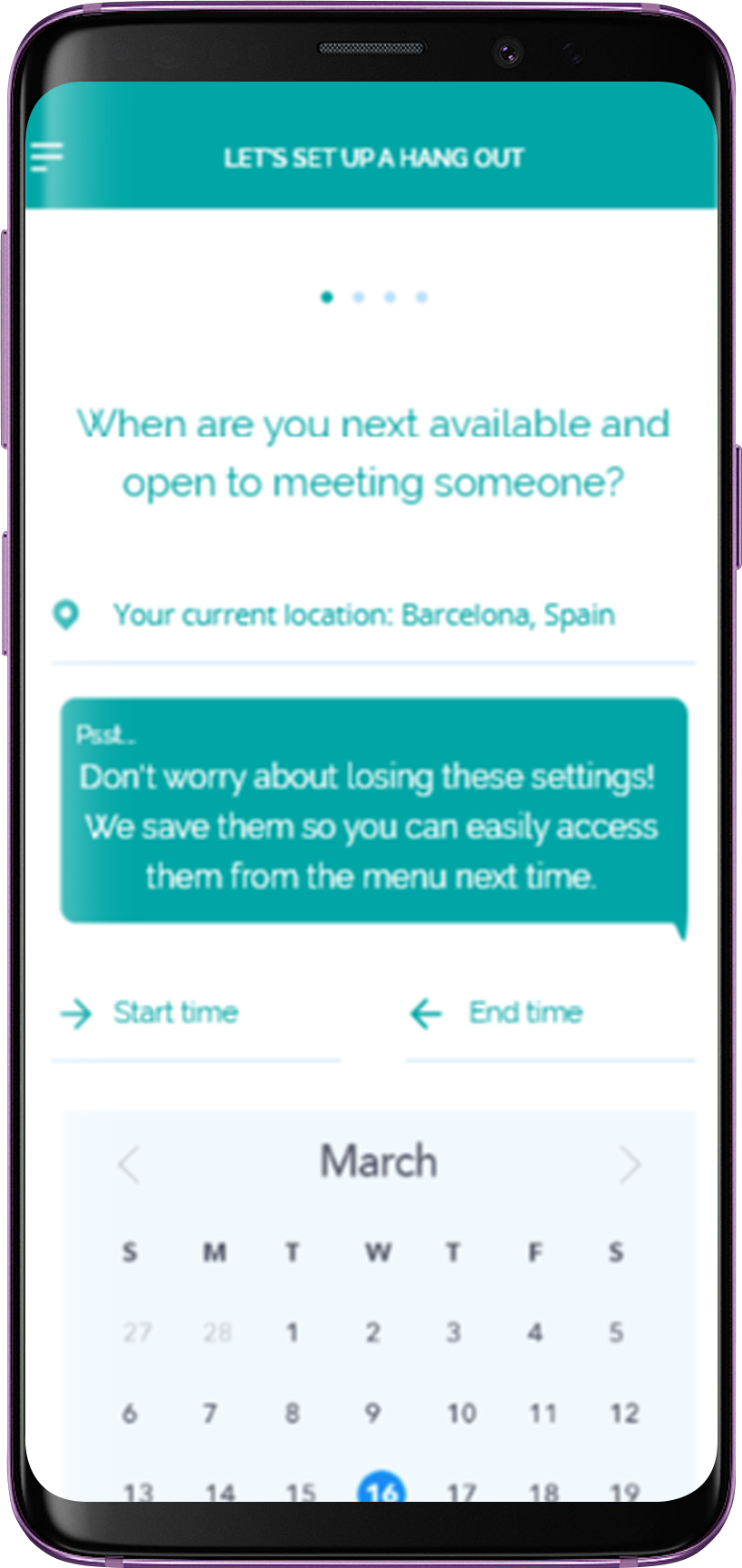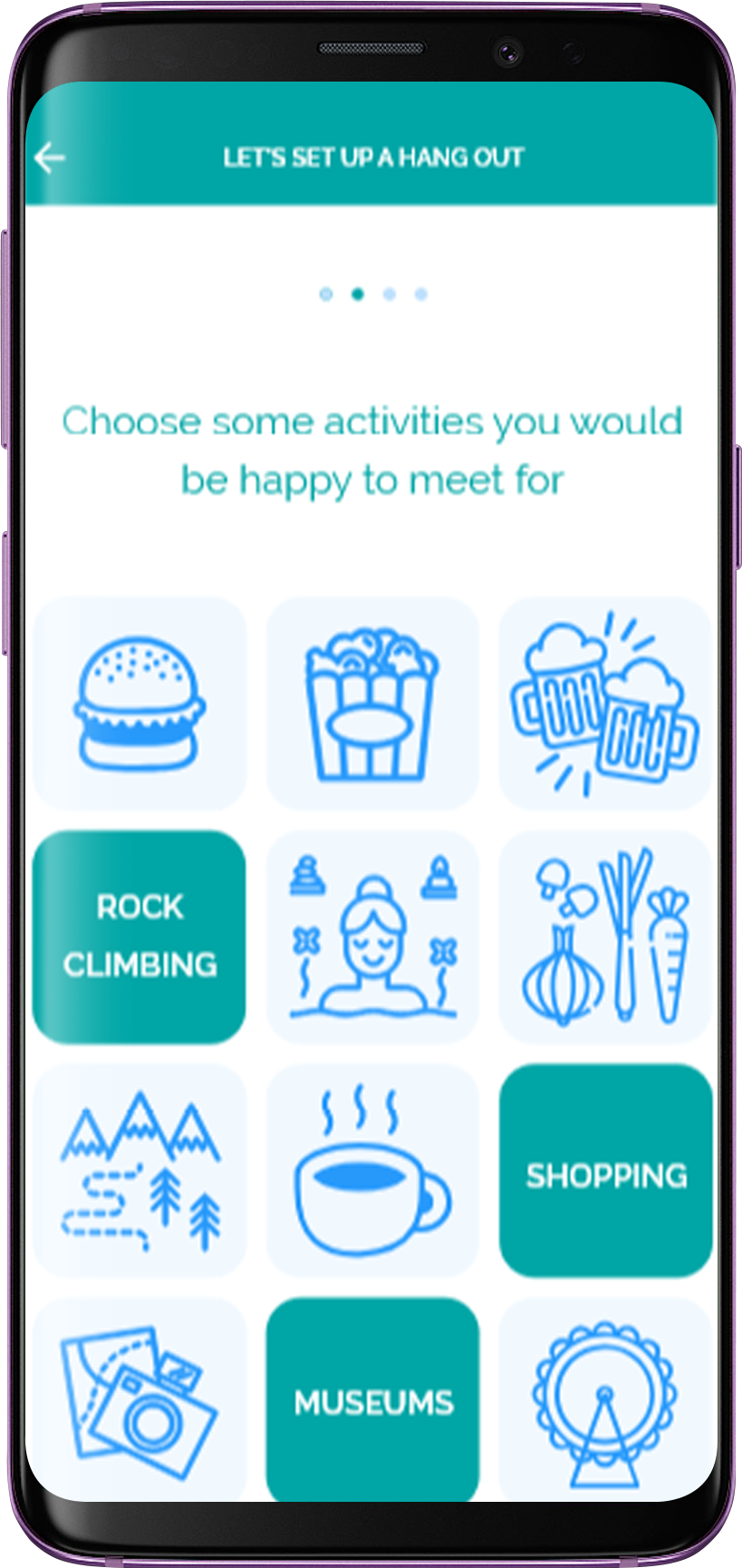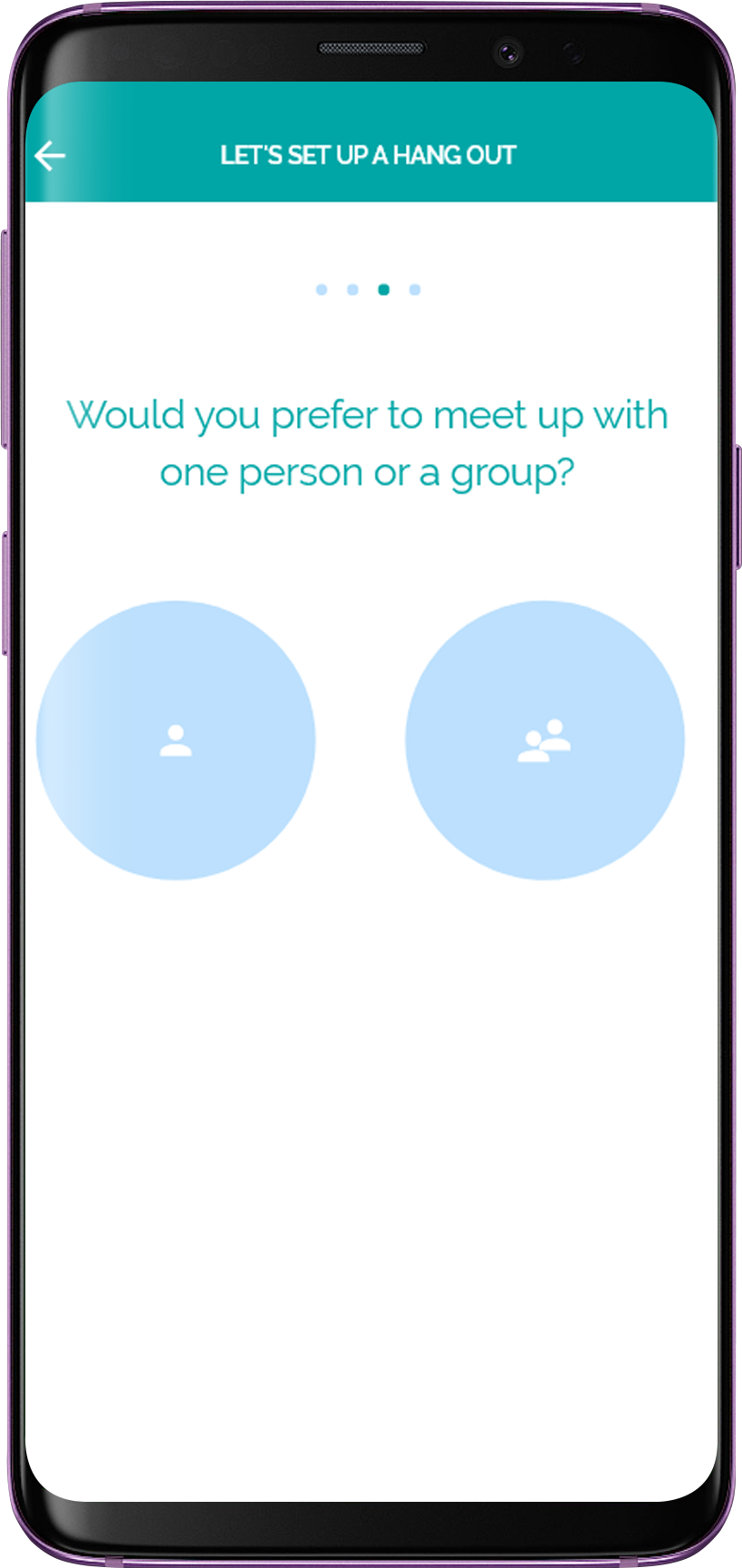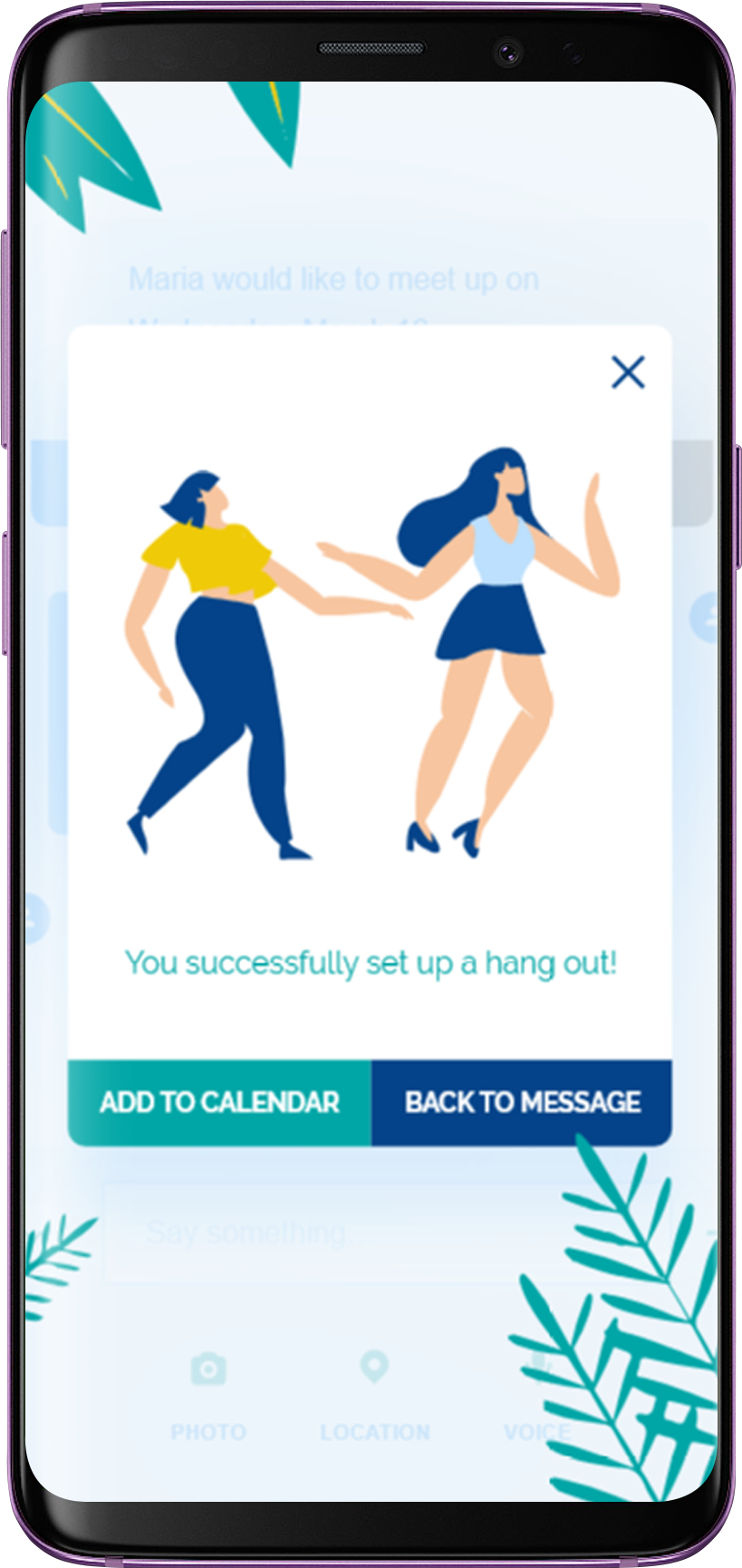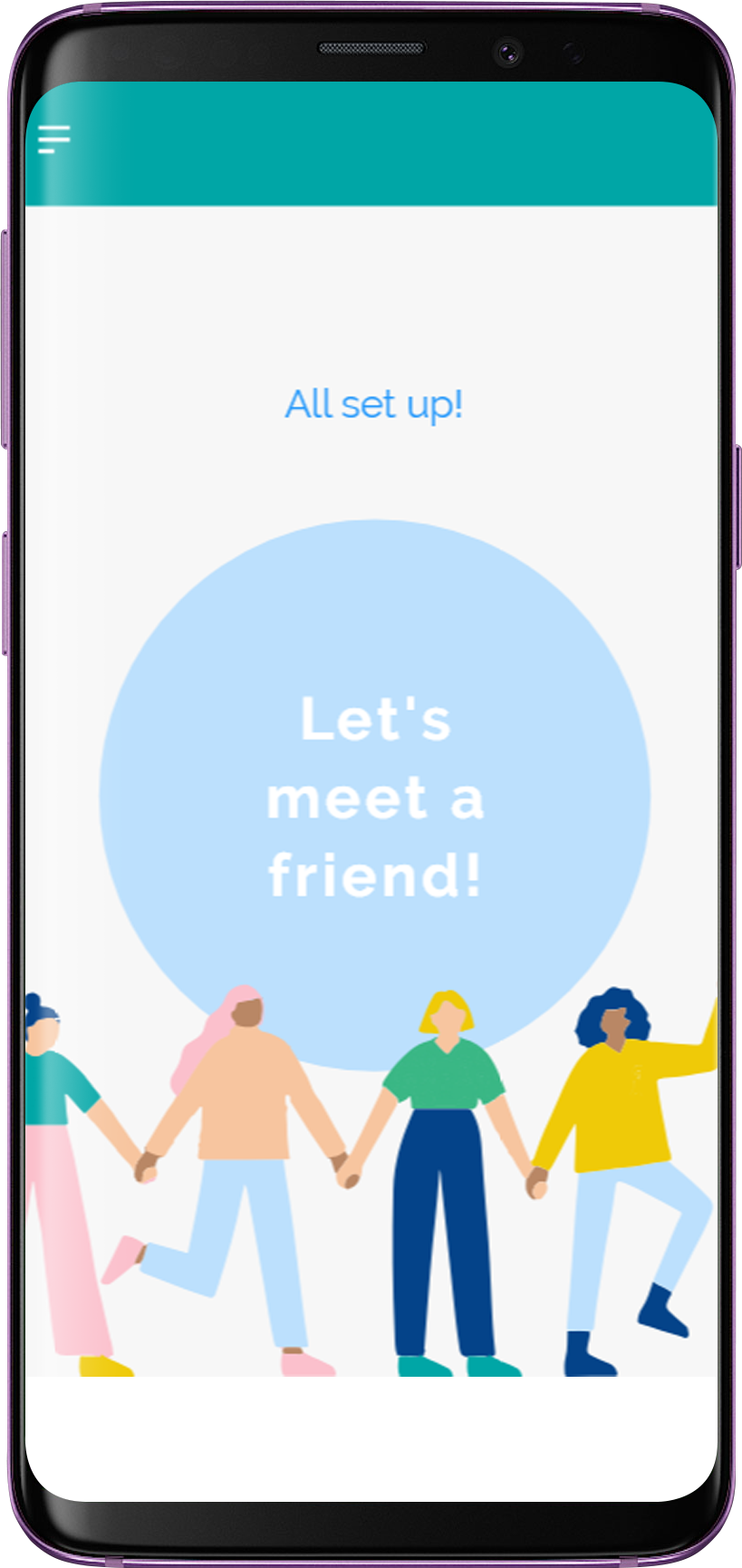Moving abroad is hard.
It doesn’t matter what you moved abroad for - whether you moved for education or for work or just to have a new experience, you have had the point in your life when you were sitting at home and thought this can’t be it for the rest of my life.
There is a whole world out there - why not explore it?
One small problem: you don’t know anyone there.
The need for connection drives us as humans.
"What would make me feel at home? A community. A group of friends. For me I think that’s the major one."
— Broad Abroad
01. Discovery
USER MOTIVATIONS
The feeling of loneliness in a new place - wanting to be able to just talk to someone about your day.
The need to connect.
Wanting to feel comfortable/at home.
USER GOALS
Feel less anxious about meeting new people.
Feel connected.
Make friends!
Over 4.6 million people could use this.
In 2016, the U.S. State Department estimated that there are 9 million U.S. citizens living abroad, an increase from an estimate of 4 million in 1999.
02. Interview Findings
Women sign up for meetups with the best of intentions but do not end up attending. This can be for a variety of reasons but the biggest concerns are:
What if it is awkward?
Meetups are not at the times when they are available
They are hard to get to and may not be worth it
The problems begin before a woman moves with trying to figure out where to live in a new city. Not knowing anyone they can ask questions to is difficult as the internet can be deceiving and women in particular need to worry about their safety.
Women are more likely to try to meet new people when they first arrive in a new country, however they quickly become discouraged as time passes.
There is a clear difference between being a foreigner and a local. They eed people who understand what they are going through - they are experiencing culture shock and everyone else is acting like everything is completely normal.
"It's rare that a group of friends that have known each other just let you in."
"I find it quite hard to make friends."
03. Competitive Analysis
Main competitors include Nextdoor, Bumble BFF, and Meetups - all of which are in essence aiming to help people feel connected, do not provide things in common over which people can connect.
Other competitors such as Duolingo, Church groups, Couch Surfing, Workaway, and book clubs are better examples of providing things in common for people to talk about, but whose main aim is not to make friends.
"I make up an excuse not to go."
04. Feature Prioritization
After interviewing multiple women living abroad, we began to focus on the things that make you have a better connection with someone in order to help understand what needed to be included in the solution:
At least 1 shared interest: this doesn’t have to be age, mainly it is just having something in common to talk about. Humor always helps as it makes things easier and it overcomes language barriers
At least 1 friend in common: during interviews we found this was equally important when making new friends as new relationships through dating apps
Shared history: people mentioned meeting others through alumni groups as they recognized those people are automatically their kind of people. Others mentioned having lived in the same place being the main topic of conversation.
These things make the meet up feel less forced and gives women a sense of security which is especially necessary when far from loved ones. Meeting up with a stranger can be dangerous, and knowing there are things in common helps you hold the other person accountable and know their background to be able to trust them.
05. MVP
Based on this, we were able to create a MVP that helps women feel safe and provides at least one topic of conversation to combat awkward first meetings. The availability aspect of the app works around each individual’s schedule, meaning there is no schedule conflict that will prevent them from attending and gets rid of awkward back-and-forth conversations trying to pick a date and time.
In time, it would be nice to incorporate a rewards/consequences system. With other social oriented apps on the market, there is no consequence for cancelling last minute. Likewise, there is no reward for making it to a meetup. By providing rewards and consequences, users will be motivated to meet people. Examples of rewards could be VIP status or food/drink discounts linked with participating restaurants, while consequences could include not being recommended as a match for a set amount of time if you cancelled without explanation.
"I have a few friends who have been to meetups and I haven't heard any success stories. I haven't heard any horror stories, it just seems to be that it was fine but they're never going to see those people again."
06. User Flow
07. Wireframes
I created paper sketches to help me visualize the layout of the different pages and used them to test the initial design with users. They helped point out key areas that needed more information and seeing them “click” through the index cards allowed me to see what call-to-actions needed to be more obvious thanks to their pausing.
08. Prototype and Design
After user testing the low fidelity prototype I was able to create from the sketches, I found even more changes that needed to be made in order to produce the best user experience. This included adding more information to the matches pages and adding notifications that let people know the information they are entering is being saved.
Click through to see some of the key screen changes.






